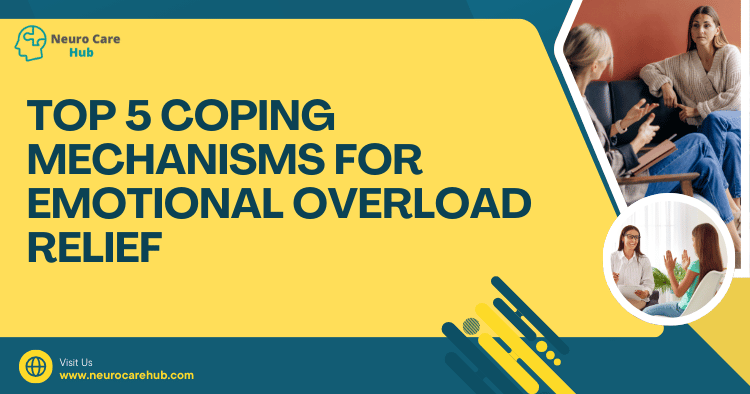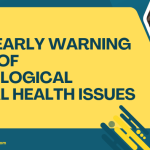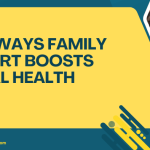Table of Contents:
- Understanding Emotional Overload
- Practice Mindfulness and Meditation
- Develop a Support Network
- Engage in Physical Activity
- Establish Healthy Boundaries
- Seek Professional Help
- Frequently Asked Questions
Understanding Emotional Overload
Emotional overload occurs when we are faced with more feelings than we can effectively manage. This can stem from various sources such as work stress, relationship issues, trauma, or life changes. Symptoms often include anxiety, irritability, fatigue, and a sense of being overwhelmed. Recognizing the signs of emotional overload is the first step toward finding relief.
Why it Matters:
Ignoring emotional overload can lead to serious mental health issues, including depression and anxiety disorders. By taking proactive steps, you can prevent these feelings from becoming debilitating.
Practice Mindfulness and Meditation
Mindfulness and meditation have gained popularity for a reason: they help ground us in the present moment. Practicing mindfulness involves paying attention to your thoughts and feelings without judgment, while meditation is a structured practice that often involves focusing on your breath or a specific thought.
Benefits:
- Reduces Stress: Studies show that mindfulness can lower cortisol levels, the hormone associated with stress.
- Improves Emotional Regulation: Regular practice helps you respond to emotions in a healthier way.
How to Get Started:
- Set Aside Time: Start with just five minutes a day.
- Find a Quiet Space: Choose a location where you can sit comfortably without distractions.
- Use Guided Meditations: Apps like Headspace or Calm can provide structure for beginners.
For more detailed techniques, check out Mindful.org.
Develop a Support Network
Having a solid support network is crucial for emotional health. Friends, family, and support groups can provide the comfort and understanding that we often need during tough times.
Benefits:
- Emotional Validation: Talking with someone who understands can help you feel less alone.
- Practical Advice: Sometimes, just hearing how others cope can provide valuable insights.
How to Cultivate Your Network:
- Reach Out: Make an effort to reconnect with old friends or make new ones.
- Join Groups: Look for community or online groups that share your interests or struggles.
Consider platforms like Meetup or Facebook Groups to find like-minded individuals.
Engage in Physical Activity
Exercise is not just beneficial for your physical health; it also plays a significant role in emotional well-being. Physical activity releases endorphins, which are natural mood lifters.
Benefits:
- Boosts Mood: Regular exercise can alleviate feelings of depression and anxiety.
- Enhances Focus: Being active can improve your concentration and cognitive function.
Recommended Activities:
| Type of Exercise | Duration | Benefits |
|---|---|---|
| Walking | 30 mins | Low impact, can be done anywhere |
| Yoga | 20 mins | Promotes relaxation and flexibility |
| Dancing | 30 mins | Fun way to express yourself and boost mood |
Find activities you enjoy to stay motivated. Check out CDC Physical Activity Guidelines for more information.
Establish Healthy Boundaries
Setting boundaries is essential for protecting your emotional space. It’s about knowing your limits and communicating them to others to prevent emotional depletion.
Benefits:
- Promotes Self-Care: Boundaries allow you to prioritize your needs.
- Reduces Stress: Clear limits can decrease feelings of overwhelm.
Tips for Setting Boundaries:
- Communicate Clearly: Be direct about what you can and cannot handle.
- Practice Saying No: It’s okay to decline invitations or requests that drain you.
For further reading on this topic, visit Psychology Today.
Seek Professional Help
If emotional overload becomes too overwhelming, seeking professional help is a wise step. Therapists and counselors can provide valuable tools to help you manage your emotions more effectively.
Benefits:
- Objective Perspective: Professionals can offer insights that friends and family may not see.
- Tailored Strategies: A therapist can help you develop a personalized coping strategy.
How to Find Help:
- Research Options: Look for licensed professionals in your area or consider online therapy platforms like BetterHelp or Talkspace.
- Ask for Recommendations: Friends or family may have suggestions based on their experiences.
Frequently Asked Questions
Q: How do I know if I’m experiencing emotional overload?
A: Look for signs such as feeling overwhelmed, excessive worry, irritability, fatigue, or difficulty concentrating.
Q: Can I manage emotional overload on my own?
A: While self-help strategies can be effective, don’t hesitate to seek professional help if you feel stuck.
Q: How long does it take to feel better?
A: Everyone’s journey is different. Some may find relief within weeks, while others may require more time. Consistency in your chosen coping mechanisms is key.
Coping with emotional overload is a journey, and it’s okay to take it one step at a time. By implementing these coping mechanisms, you can cultivate a healthier emotional landscape and find relief from the weight of overwhelming feelings. Remember, you are not alone in this; support is available, and help is just a call or click away.
Also look for:
These resources offer further insights into the intersection of neurology and emotional well-being, providing additional coping strategies and professional guidance.






